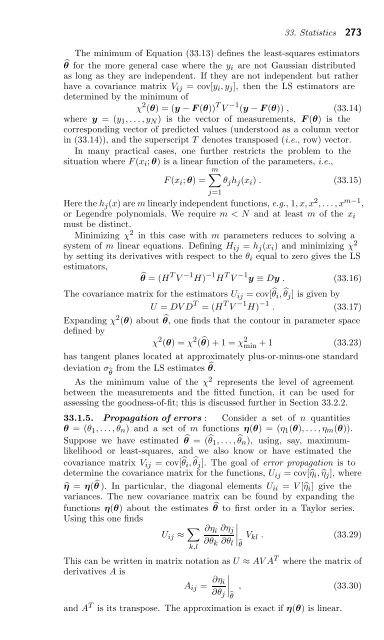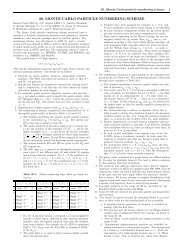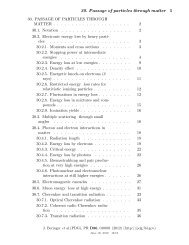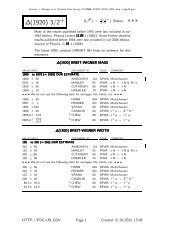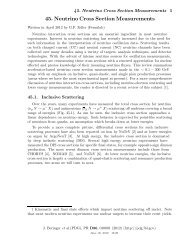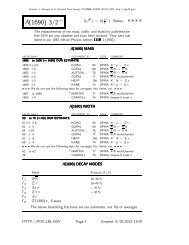Particle Physics Booklet - Particle Data Group - Lawrence Berkeley ...
Particle Physics Booklet - Particle Data Group - Lawrence Berkeley ...
Particle Physics Booklet - Particle Data Group - Lawrence Berkeley ...
You also want an ePaper? Increase the reach of your titles
YUMPU automatically turns print PDFs into web optimized ePapers that Google loves.
33. Statistics 273<br />
The minimum of Equation (33.13) defines the least-squares estimators<br />
�θ for the more general case where the yi are not Gaussian distributed<br />
as long as they are independent. If they are not independent but rather<br />
have a covariance matrix Vij =cov[yi,yj], then the LS estimators are<br />
determined by the minimum of<br />
χ 2 (θ) =(y− F (θ)) T V −1 (y − F (θ)) , (33.14)<br />
where y =(y1,...,yN) is the vector of measurements, F (θ) is the<br />
corresponding vector of predicted values (understood as a column vector<br />
in (33.14)), and the superscript T denotes transposed (i.e., row) vector.<br />
In many practical cases, one further restricts the problem to the<br />
situation where F (xi; θ) is a linear function of the parameters, i.e.,<br />
m�<br />
F (xi; θ) = θjhj(xi) . (33.15)<br />
j=1<br />
Here the hj(x)aremlinearly independent functions, e.g., 1,x,x2 ,...,xm−1 ,<br />
or Legendre polynomials. We require m


